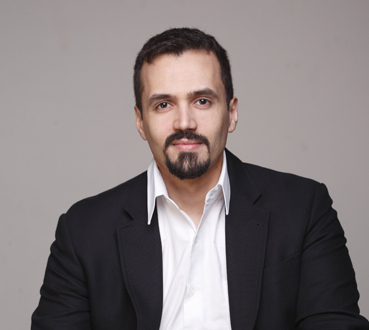By Raphaël Hadas-Lebel
PARIS: Primary elections in France? The idea that a large number of voters should designate the presidential candidates of the major political parties was born in the United States, and we French have long believed that such things were American to the core. But has the political primary now been successfully transplanted to Europe?
Until recently, nothing would have appeared more foreign to French political culture. Choosing candidates has been an affair confined solely to political parties. The idea of a public “tournament” to select a party’s nominee was first proposed in the 1980s by the right-wing politician Charles Pasqua, but without success. It was ultimately the usually more America-phobic French left that successfully adopted the practice in 1995, in order to nominate Lionel Jospin for president, and then, in a more dramatic chain of events, to nominate Sègoléne Royal in 2006. But neither was as monumental as the Socialists’ most recent primary.
Based on the Italian experience — also on the political left — of 2005 and 2007, the Socialist party has, in effect, decided that its candidate for the 2012 presidential election would be decided on the basis of an expanded primary. Not only would registered Socialist voters be able to participate; so would all voters who agree to sign a moral charter attesting to the values of the left and were willing to donate a nominal sum of €1 to the party.
The Socialists had initially envisioned a process, following the American example, which was to include successive votes, beginning at the departmental level before continuing to a nationwide poll. But, given France’s size, the party finally decided that it was preferable to limit itself to one national vote, but in two stages, which took place on Oct. 9 and 16.
Of course, protests were raised, notably from the right, regarding the primary’s constitutionality, the legitimacy of using public facilities for a “private” election, and the legality of using electoral lists that sometimes include confidential information. But, while the participants represented only a limited part of the electorate, 2.6 million voted in the first round, and more than three million in the subsequent run-off between the two top candidates, confirming broad public acceptance of the process as legitimate and valuable.
Further affirming the primary’s importance, the three debates between the six candidates before the first round of voting, and the debate between the final two candidates, Martine Aubry and François Holland, attracted a large television audience. Indeed, the debates’ high ratings had the unintended consequence of allowing the Socialist party to dominate France’s media landscape for weeks.
It thus appears that the introduction of primaries represents an important innovation that gives to citizens a new way to participate in and contribute to public life. In fact, at a time of widespread alienation from the institutions of representative democracy, direct citizen participation in nominating candidates is probably an irreversible trend.
This is particularly true in the case of presidential elections, which have been regarded since 1962 as the key to the legitimacy of all French political institutions. Although President Nicolas Sarkozy recently opposed the use of primary elections in his own party, many of those responsible for his legislative majority, including Prime Minister Francois Fillon, seem to consider it likely that the French right will also begin the practice of using political primaries, if not in 2012 (because Sarkozy will run again), then in 2017.
But there are risks to embracing primaries. For one thing, they increase the personalization of political power, which can overwhelm established codes of civility. True, despite certain contested events in the days preceding the Socialist run-off, the level of brutishness among candidates was limited. But it is certain that arguments used in the primaries against Holland, the ultimate winner, will be re-used the moment the presidential election campaign begins.
More generally, it remains to be seen how willing the rival candidates in party primaries will be to reunite under the same political banner for the election. As in the US, however, lingering divisiveness may be a price worth paying for a tool with which to renew the principles and practice of the democratic spirit.
Raphaël Hadas-Lebel, Honorary Section President of the State Council, is Professor (Emeritus) at the Institut d’Etudes Politiques in Paris. This commentary is published by Daily News Egypt in collaboration with Project Syndicate, www.project-syndicate.org.


